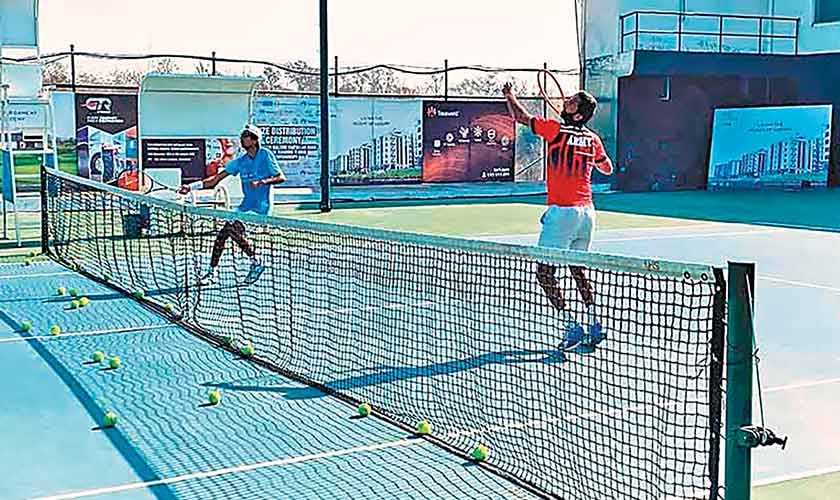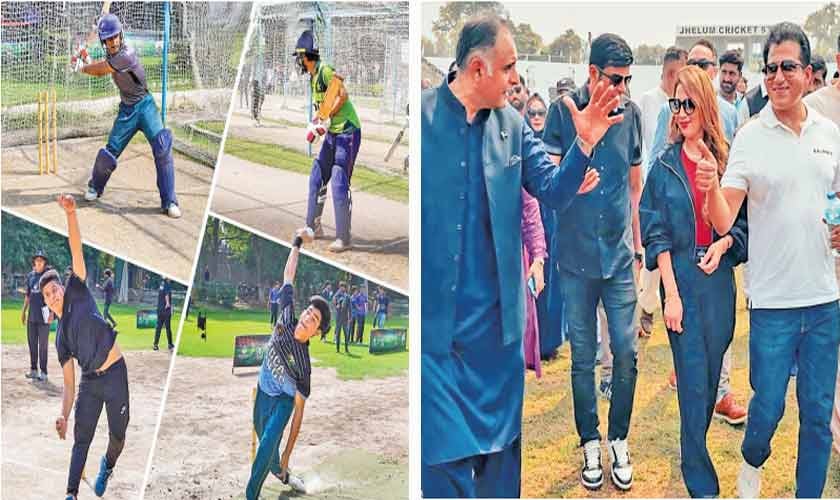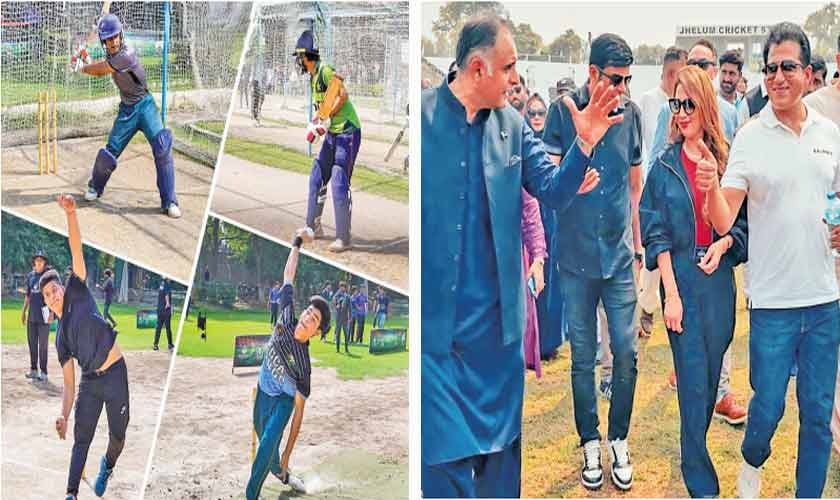Pakistan Suffers Another Davis Cup Defeat, Raising Questions Over Tennis Federation’s Governance
Pakistan has faced yet another loss in the Davis Cup, this time at the hands of Paraguay. This marks the fourth defeat for the national team since 2023. Despite the continuing setbacks, there appears to be little indication that the Pakistan Tennis Federation (PTF) is alarmed or concerned about reversing this troubling trend.
A Persistent Problem Ignored
The pattern of defeats is no longer a worrying issue for the PTF, as remedial or corrective measures remain absent. One of the simplest ways to improve performance is by acting upon the detailed reports submitted by the team manager or non-playing captain after every tie. Unfortunately, this crucial step has never been undertaken by the PTF—and there seems to be little hope that this will change anytime soon.
Insights from the Captain’s Report
To understand the underlying issues, it is important to revisit the captain’s report submitted after the Davis Cup World Group-II first-round tie between Pakistan and Barbados in September last year. The report was addressed to the then Secretary of the PTF, who also accompanied the national team during the recent tie against Paraguay.
The captain’s detailed report highlighted broader structural challenges and developmental concerns that are negatively impacting Pakistan’s Davis Cup performances. He noted a recurring pattern of avoidable shortcomings, the most prominent being an over-reliance on veteran players, which has contributed to a cycle of repeated defeats.
A Constructive Roadmap Overlooked
The report proposed specific short- and long-term corrective actions essential for keeping Pakistan competitive at the Davis Cup level. It suggested a constructive roadmap aimed at sustainable growth, strategic planning, and a generational transition within Pakistan tennis.
Regrettably, the PTF management never took the captain’s recommendations seriously.
Key Factors Affecting Team Performance
The report identified several critical factors affecting the team’s competitiveness:
– **Lack of Composure and Tactical Clarity:** Established players Shoaib and Yousaf struggled against experienced opponents, lacking the necessary composure and strategy.
– **Fitness Concerns:** Many aging players showed diminished fitness, especially during doubles matches.
– **Risk of Stagnation:** Continued dependence on veteran players risked stagnation and increased vulnerability during crucial rubbers.
– **Need for Balanced Inclusion:** The captain emphasized that while younger players must be integrated into the team, this should be paired with improved preparation and support, ensuring they compete effectively rather than merely participate.
Recommended Measures for Improvement
The captain proposed several immediate and long-term actions, including:
– **Short-Term Measures:**
– Organize preparatory camps on surfaces similar to upcoming tie locations.
– Increase younger players’ participation in international ITF Futures and Challenger tournaments to enhance match readiness.
– **Long-Term Strategy:**
– Gradually phase out reliance on aging players in key rubbers.
– Focus on grooming younger talent, even at the expense of short-term results.
– Establish a national doubles program aimed at building team chemistry and specialization.
– Integrate modern sports science—such as data analytics, injury prevention, and physical conditioning—into the core training framework.
Unfortunately, none of these recommendations were implemented, and the PTF replicated the same errors in the recent tie against Paraguay, resulting in yet another defeat.
The Paraguay Tie: A Reflection of Deep-Seated Issues
According to media reports, Pakistan, ranked 53rd globally, was soundly defeated 3-1 by Paraguay, ranked 64th, on the red clay courts of Asuncion in their World Group II first-round tie. The loss once again underscored a governance crisis within Pakistan tennis.
Veteran Players at the Forefront—A Double-Edged Sword
Notably, 46-year-old Aisam-ul-Haq Qureshi, who also serves as the President of the PTF, fielded himself as a player without any trials. This decision proved costly for the team.
After Pakistan lost both singles matches on day one, the doubles rubber—led by veterans Aqeel Khan and Aisam—was considered the team’s lifeline. However, this pair, both in their forties, lost the match and with it the tie.
Age vs. Performance: A Burdened Strategy
The national tennis community has repeatedly expressed concerns over the continued inclusion of Aisam and Aqeel in the Davis Cup team, primarily due to their advancing age. Yet, the federation appears indifferent to these concerns.
At 46, Aisam is well beyond the typical prime years for competitive tennis. Furthermore, his dual role as both PTF President and active player presents a clear conflict of interest. In most tennis-playing nations such as India, Australia, or Spain, federation heads act purely as administrators. Their focus lies on securing funding, nurturing junior pathways, and appointing capable captains—not actively playing.
In Pakistan, this blurred distinction has damaged both merit-based selection processes and the federation’s credibility on the international stage.
Preparation and Selection Shortcomings
Problematic preparation also marred Pakistan’s chances. While a grand national camp took place in Islamabad, the official pre-tie training camp was held in Turkey for just four days and included only Aisam, Aqeel, captain Haseeb Aslam, and the team physiotherapist. Younger squad members Muzammil, Huzaifa, and 15-year-old US-based Mikaeel Ali Baig were excluded from this vital red-clay preparation.
This selective approach left Pakistan overly reliant on veterans and deprived the juniors of essential match readiness on a demanding surface where preparation is critical.
Moreover, no national trials were conducted to select the junior members of the team. Experience was again used as a convenient excuse to recycle veteran players, a strategy that has proven unsuccessful time and again.
A Call for Change
The time has come for the Pakistan Tennis Federation to recognize that its mandate is to nurture talent and manage the sport effectively—not to provide playing opportunities for officials.
Failing to act on expert advice, neglecting youth development, and perpetuating conflicts of interest continue to undermine Pakistan’s potential in international tennis. Without sincere efforts toward reform, the cycle of defeats will likely continue, further damaging the reputation and future of tennis in Pakistan.
https://www.thenews.com.pk/tns/detail/1346809-ptf-does-not-seem-alarmed-or-worried-over-davis-cup-defeats



